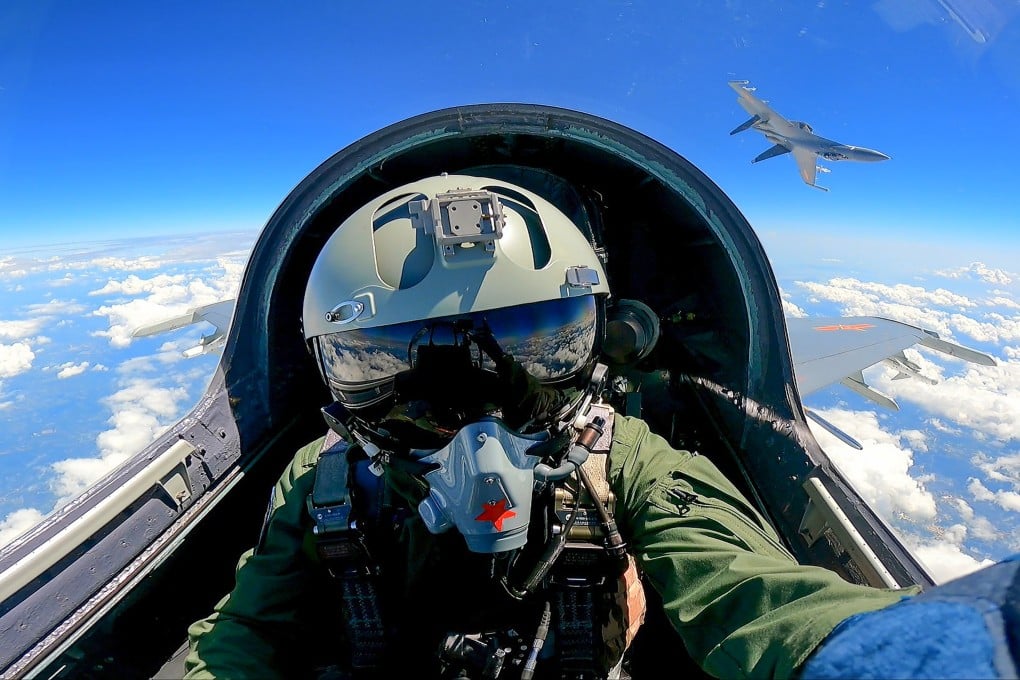Mainland China’s sorties around Taiwan force island to push military fuel budget up 55 per cent to US$344 million
- Taipei’s defence ministry announces 55 per cent budget increase in fuel cost to meet challenges from Beijing’s military operations around island
- Island monitors PLA activity through intelligence channels and will not let down its guard while Taiwanese vice-president is in US: defence spokesman

The amount spent on fuel by the Taiwanese air force and navy for shadowing, patrols and other missions will go up to roughly NT$11 billion (US$344 million) for the 2024 financial year from NT$7.1 billion this year, according to the island’s defence ministry on Tuesday.
“As we expect the enemy will increase its military threats against us, we have initially asked for a [fuel] budget of NT$11 billion to deal with the severe situation,” said Rear Admiral Chen Chun-chung, head of the ministry’s material readiness department, in a news conference.
In 2022, fuel spending for the military stood at NT$5.9 billion, a big increase from about NT$4 billion the year before.
Chen’s comment came after local news reports said the defence ministry had used all its NT$7.1 billion fuel budget for this year and owed government-owned petroleum and gas company CPC corporation NT$4 billion after running out of funds.
Chen admitted that there was a need to raise spending but denied that the ministry owed the oil company NT$4 billion.
“So far we have paid the bill according to the contract and we do not owe [the corporation] any money,” he said.
Tsai Shih-ying, a legislator of the ruling Democratic Progressive Party, said according to his information from the ministry, the military had already spent all its budget this month and was using emergency funding to pay the fuel bill.
